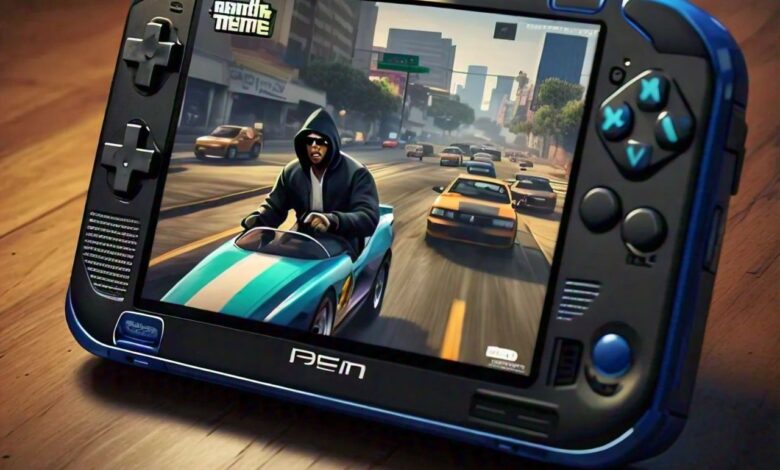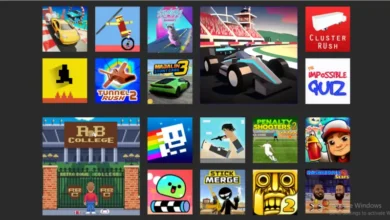Meta Postpones GTA San Andreas VR Release Indefinitely: A Look at the Delay and Its Implications

In the ever-evolving world of virtual reality (VR), anticipation has been building for a groundbreaking experience that would bring the iconic world of Grand Theft Auto: San Andreas into a fully immersive virtual reality setting. However, the excitement surrounding this project has recently been met with disappointment, as Meta (formerly Facebook) announced an indefinite delay of the GTA San Andreas VR release, years after it was first unveiled. This article explores the reasons behind the delay, the impact on the gaming community, and what this means for the future of VR gaming.
The Initial Announcement and Excitement
The announcement of GTA San Andreas VR was a momentous occasion for both gaming and VR enthusiasts. The prospect of stepping into the shoes of Carl “CJ” Johnson and exploring the sprawling, crime-ridden streets of San Andreas in virtual reality captured the imagination of many. Fans eagerly anticipated the opportunity to experience one of the most beloved games in the Grand Theft Auto series in a completely new way, with the added immersion that VR offers.
The announcement also aligned with Meta’s broader strategy to position itself as a leader in the metaverse and VR spaces. The idea of bringing such a high-profile title to its VR platform, the Meta Quest, was seen as a bold move that could significantly boost the adoption of VR technology and bring mainstream attention to Meta’s VR initiatives.
The Promise of a Revolutionary Experience
What made the announcement particularly exciting was the potential for GTA San Andreas to be more than just a simple port. There was speculation that the VR version would incorporate advanced features like hand-tracking, motion controls, and a first-person perspective that would allow players to engage with the game’s world in ways that were previously impossible.
The promise of reimagining an open-world game as expansive and intricate as San Andreas in VR was nothing short of revolutionary. Players envisioned the thrill of engaging in high-speed chases, navigating the urban landscape, and interacting with the diverse characters of Los Santos, all from the immersive vantage point of VR.
The Indefinite Delay: What Happened?
Despite the initial excitement, the development of GTA San Andreas VR has faced significant hurdles. Meta’s recent decision to delay the project indefinitely has left fans and industry watchers wondering what went wrong.
Several factors may have contributed to this decision:
- Technical Challenges: Adapting a game as complex as GTA San Andreas for VR is no small feat. The original game, released in 2004, was designed for traditional consoles and PCs, not for the intricacies of VR technology. Converting its massive open-world environment, intricate AI systems, and vast array of gameplay mechanics into a seamless VR experience likely presented numerous technical challenges.
VR gaming requires a consistent and high frame rate to prevent motion sickness and ensure a smooth experience. Balancing the demanding graphical and processing requirements of a game like GTA San Andreas with the limitations of current VR hardware may have been more difficult than anticipated. - Shifting Priorities at Meta: Meta has undergone significant changes and strategic shifts since it first announced the GTA San Andreas VR project. With its rebranding and increased focus on the metaverse, Meta might have reprioritized its resources and efforts, possibly redirecting them away from specific VR game projects in favor of broader metaverse initiatives.
- Financial Considerations: Developing a high-quality VR version of a game like GTA San Andreas is undoubtedly a costly endeavor. If Meta faced challenges in justifying the return on investment, particularly in a niche market like VR gaming, this could have influenced the decision to delay or even potentially cancel the project.
- Collaboration and Licensing Issues: Another possible factor could involve the collaboration between Meta and Rockstar Games, the developer of the GTA series. Licensing issues, differing creative visions, or other business-related complications may have played a role in the project’s delay.
The Impact on the VR Community
The indefinite delay of GTA San Andreas VR is a significant setback for the VR community, which has been eagerly awaiting more high-quality, AAA experiences to justify the investment in VR hardware. For many, GTA San Andreas VR was seen as a potential “killer app” that could bring VR into the mainstream, much like how the original GTA San Andreas helped solidify open-world gaming as a dominant genre.
The delay also raises concerns about the viability of large-scale VR adaptations of classic games. If a company as well-resourced as Meta struggles to bring such a project to fruition, it could signal challenges for similar endeavors in the future.
What This Means for the Future of VR Gaming
While the delay is undoubtedly disappointing, it does not spell the end for VR gaming or Meta’s ambitions in this space. Instead, it highlights the challenges of bringing complex, beloved titles into a new medium that still has its technological limitations.
For the VR industry to continue growing, it will need to overcome these challenges, whether through technological advancements, improved development tools, or more efficient production processes. In the meantime, the community will likely see more experimental and innovative VR experiences that are designed from the ground up for virtual reality rather than being adapted from traditional gaming formats.
Conclusion: A Setback, Not a Defeat
The indefinite delay of GTA San Andreas VR is a significant setback for Meta and the VR gaming community, but it does not diminish the potential of VR as a transformative technology. While fans may be disappointed, this situation underscores the complexity and ambition of adapting classic games for new platforms. As VR technology continues to evolve, there remains hope that we will eventually see GTA San Andreas and other beloved titles brought to life in virtual reality, delivering on the promise of truly immersive gaming experiences.




